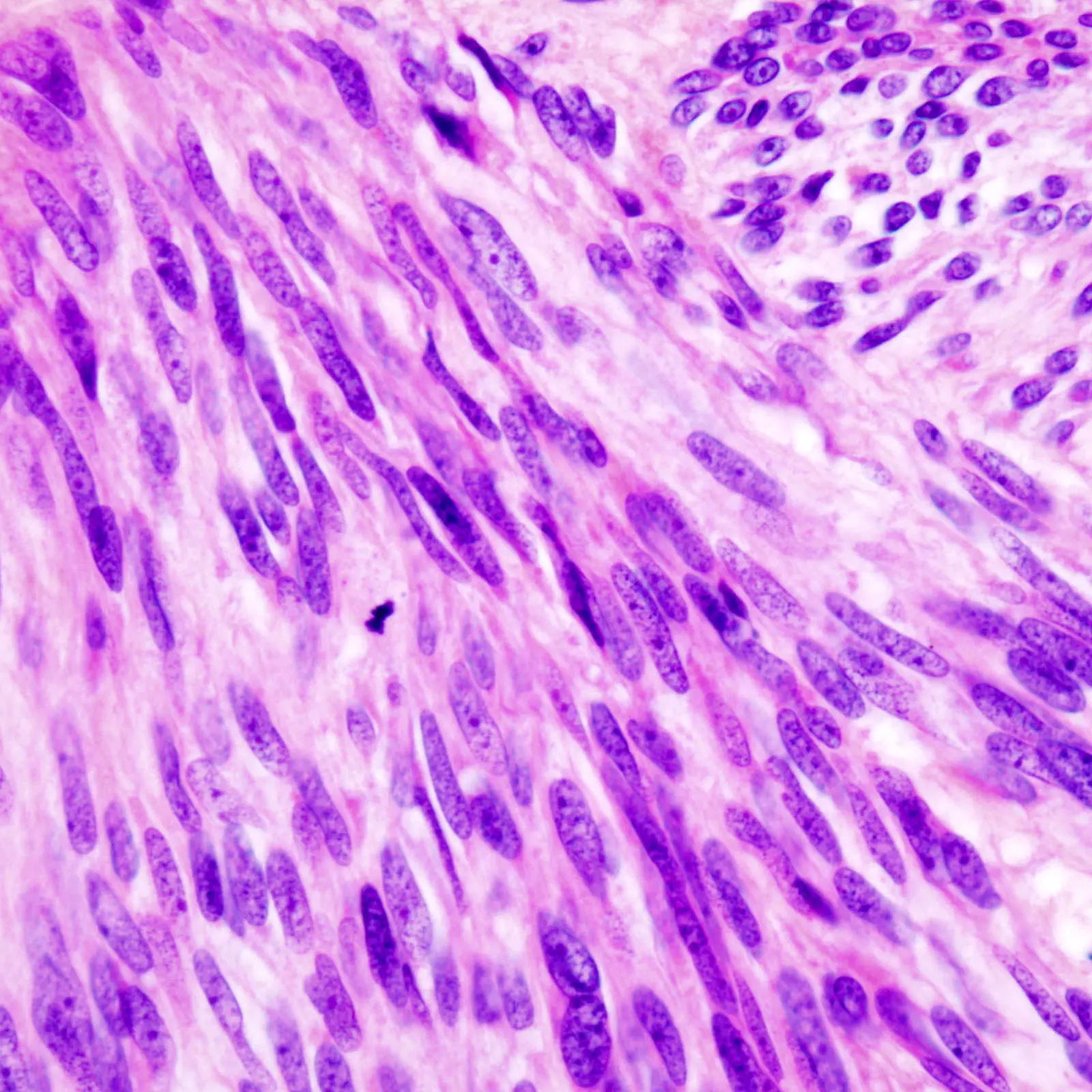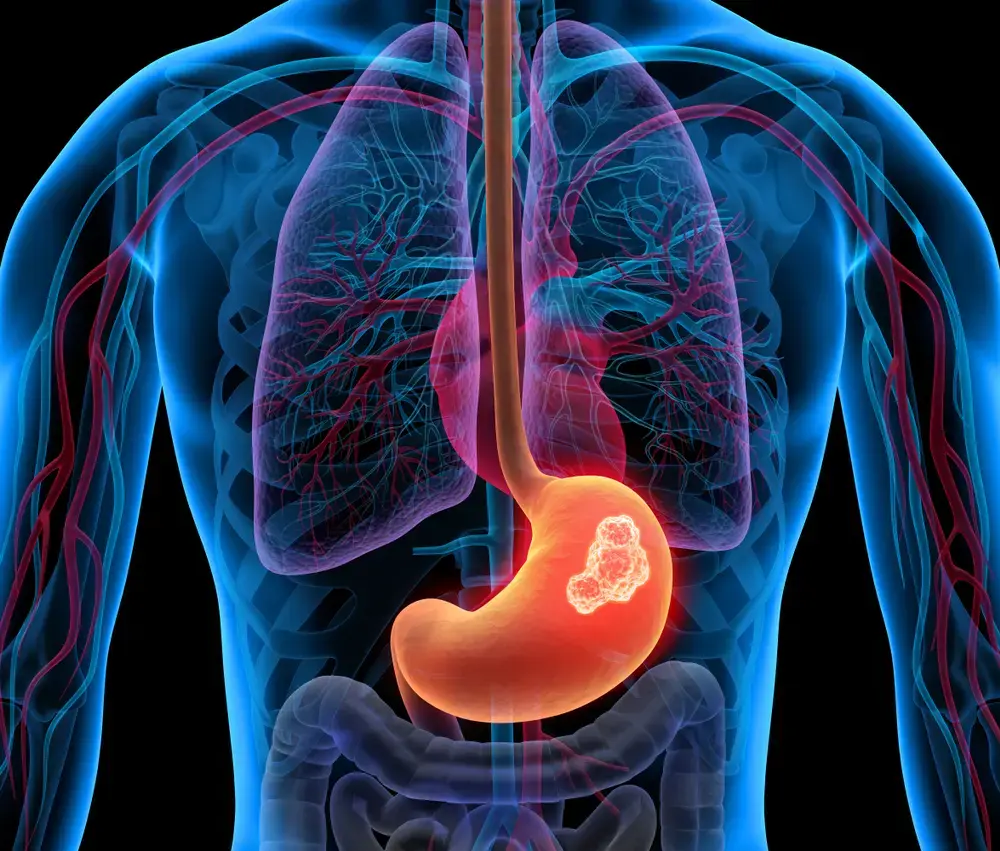Can Gastrointestinal Stromal Tumor be Cured?
Sometimes
Treatment can be effective, but outcomes vary; complete surgical removal is often the primary treatment, and targeted therapies have improved outcomes in some cases; long-term monitoring is crucial to detect and manage potential recurrences

What is Gastrointestinal Stromal Tumor?
Gastrointestinal stromal tumor (GIST) is a rare type of cancer that forms in the walls of the gastrointestinal tract. Treatment involves surgery, targeted therapy, and, in some cases, chemotherapy.

Clinical Aspects

Characteristics
Rare tumor that occurs in the gastrointestinal tract, often in the stomach or small intestine

Symptoms
Abdominal pain, blood in stool, feeling full quickly, unintentional weight loss

Diagnosis
Imaging studies, biopsy

Prognosis
Variable; depends on the size, location, and response to treatment

Complications
Metastasis, complications of untreated GIST
Etiology and Treatment

Causes
Mutations in the KIT or PDGFRA genes; exact cause unclear

Treatments
Surgery to remove the tumor, targeted therapy, chemotherapy

Prevention
Surgery to remove the tumor, targeted therapy, chemotherapy
Public Health and Patient Perspectives

Epidemiology
Tumor arising in the gastrointestinal tract

Patient Perspectives
Prognosis varies based on the characteristics and response to treatment
Remember, the information provided here is intended for general knowledge purposes and may not apply to every individual case. To ensure you have accurate information relevant to your specific situation, always consult with a healthcare professional.
Share: